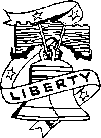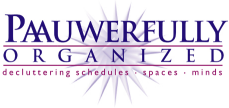
"Independent
will is our capacity to act. It gives us the power to transcend
our paradigms, to swim upstream, to rewrite our scripts, to act
based on
principle rather than reacting based on emotion or circumstance."
-Stephen Covey
We
have been given the ability to examine our conscious thoughts and
choose how we react in any given situation. We learn at a very early
age that if we act a certain way, we will achieve a certain result.
Often the result we opt for is safety. And safety is necessary to
preserve our physical well-being. However, our desire to be "safe"
sometimes paralyzes our ability to exercise our free will. From
childhood on, most of us have been programmed to "play it safe,"
and this often affects the choices we make as adults. We tell ourselves,
"That was so disappointing before, so I better not take that chance
again."
Do you allow your fear of hurt, rejection, or failure to determine
how much risk you are willing to take? What is the cost of doing
this? Perhaps you're stuck in a job or career path you hate, or
you are in a relationship that does not serve you, or you've chosen
not to pursue a relationship you want. Do you struggle with low
self-esteem and self-confidence? If so, you are probably severely
hampering your ability to manifest what you want in your life by
convincing yourself that you should not try, or that you do not deserve
what you really want. Our choices are strongly influenced by our
disempowering emotions. By learning to recognize and step out of
experiencing these emotions, a whole new world of possibility will
be available to you.
I know this from personal experience. For 13 years I chose to stay
in a stressful career that I did not find fulfilling. The more time
I invested in that career path, the less at choice I felt. At one
point I took an exam to receive a special certification in my field.
When I passed the exam and was certified, I felt like there was
no turning back! I told myself, "I can't leave this field
now…look how much I've invested in it!" And besides, I had no idea
what else I could possibly do. Fear held me back, until one day
the pain of not making a change outweighed the fear of
the unknown.
Susan Jeffers, author of Feel
the Fear and Do it Anyway, teaches us how to stop negative thinking
patterns and reeducate our minds to think more positively. In her
book, she shows us how to risk a little every day, how to turn every
decision into a "No-Lose" situation, and much more.
When my clients focus on their values -- what is most important to
them at the core -- they are more at choice and less at effect.
They recognize that they have the freedom to choose based on their
own values, versus being influenced by limiting beliefs, circumstances,
or the opinions of others. One of the great joys of being a coach
is that I get to journey with my clients as they create the work
and play they are most passionate about. When passion and talents/skills
intersect, there is no limit to the possibilities!
 "If your
success is not on your own terms, if it looks good to the world
"If your
success is not on your own terms, if it looks good to the world
but does not feel good in your heart, it is not success at all."
-Anna Quindlen
Most
of us grew up with an "outside-in" model of thinking. In other words,
we have been influenced by the advice and opinions of others rather
than trusting the answers from within. When we follow the outside-in
model, the results do not usually bring about a deep level of satisfaction
or fulfillment. Outside-in thinking means that we try to change, improve,
or transform ourselves and our circumstances based on what others
think. Outside-in thinking represents a reactive model, based
on external circumstances. Not only is this less effective, but it
usually takes more effort and energy.
The "inside-out" model of thinking represents a proactive model,
which is based on accessing one's own internal wisdom and core values.
The word "proactive" means more than merely taking initiative. Our
behavior is a function of our decisions, not our conditions. We can
subordinate feelings to values. We have the initiative and the responsibility
to make things happen. When we align our actions with the essence
of who we are and what we value most, we are using the inside-out
model. As each of us more fully honors our essential selves and our
values, outer conditions begin to change, improve, and even transform.
One of the best illustrations of the power of "inside-out" came to
me when I was a child. I went to see the movie Papillon.
For those not familiar with this story, Henri Charriere was a Frenchman
who was convicted in 1931 of a murder he did not commit. Sentenced
to life imprisonment, he spent 12 years in the penal colony of French
Guiana. After eight unsuccessful attempts to escape, he finally got
away to Venezuela. More than 20 years later, when he was 60, Charriere
wrote his story, which became an international best seller and was
made into a movie. One scene from the movie has stuck with me all
these years. Charriere was locked in a dark, small cell in solitary
confinement almost 24 hours a day. The only living things sharing
the tiny prison cell with him were the roaches. He chose to make these
roaches his "friends" and actually looked forward to seeing them on
the occasions when a beam of light would come into his cell so he
could see.
Now, if you're like me, I was taught that roaches were not
my friends. This scene in the movie taught me a very important lesson
in life: It is not our circumstances that make or break us, but rather
our response to those circumstances. Jack Canfield illustrates
this beautifully in his book, How
to Build High Self-Esteem, by sharing this simple equation: E
(experience) + R (response) = O (outcome).
In Charriere's case, the experience was that he was imprisoned
in solitary confinement in a very small roach-infested cell with little
or no light. The response was that he chose to think
of the roaches as welcomed guests in his home -- his way of honoring
his own value of having companionship in his life. The outcome
was that he was able to maintain his sanity by inviting the roaches
to provide him with the companionship he so desperately craved while
in solitary confinement. Had Charriere's response been different,
I'm certain he would have experienced a completely different outcome.
As I recall, the movie paralleled Charriere's life with that of another
prisoner in the same penal colony. Although the two prisoners shared
similar experiences, their responses were quite different. The other
man ended up losing his sanity and dying during an attempt to escape.
Although we may never find ourselves in Charriere's circumstances,
I believe most of us are mentally imprisoned by our own response to
experiences in our lives. When we experience emotions like fear, anger,
and jealousy, we have chosen thoughts that put us in the smallest
of jail cells. These emotions completely paralyze our freedom of choice.
We have the ability to be completely at choice about how we see things,
how we feel, and what we do as a result. In Stephen Covey's book,
The
Seven Habits of Highly Effective People, he explains how these
things are all connected: Our paradigms -- the lens through
which we view things -- inform our thoughts. Our thoughts inform
our feelings. Our feelings inform our response. Our response
affects the outcome. This explains how two people working from
different paradigms can experience the same event and yet experience
completely different outcomes. To illustrate, Stephen Covey tells
of an experience he once had:
Mr. Covey
was sitting on a New York subway one quiet Sunday morning when a man
and his children got on his subway car. The man sat down next to Covey
and closed his eyes, while his children immediately began yelling back
and forth, throwing things, and even grabbing people's papers. Although
the children were being very disruptive, the father made no attempt
to control his kids. It appeared that he was oblivious to the situation.
Covey grew more irritated by the minute. Clearly everyone else on the
subway felt irritated, too. So Covey finally turned to the man and said, "Sir, your children are really disturbing a lot of people. I wonder
if you couldn't control them a little more?" The father lifted his gaze
as he became conscious to the situation, and he said, "Oh, you're right.
I guess I should do something about it. We just came from the hospital
where their mother died about an hour ago. I don't know what to think,
and I guess they don't know how to handle it either."
At this point, Covey
shifted from feeling irritated and judgmental to feeling compassion, concern,
and empathy. In other words, as Covey got more information, it shifted
his paradigm, which shifted the way he thought about the
situation, which shifted his feelings about the man and his children.
And all of these shifts helped Covey to choose a different response,
which changed the outcome for both Covey and the other man.
During the month of July, as the U.S. celebrates another year of independence, let's give pause to consider how each of us can be liberated by our own choices and live our lives more intentionally.
|


